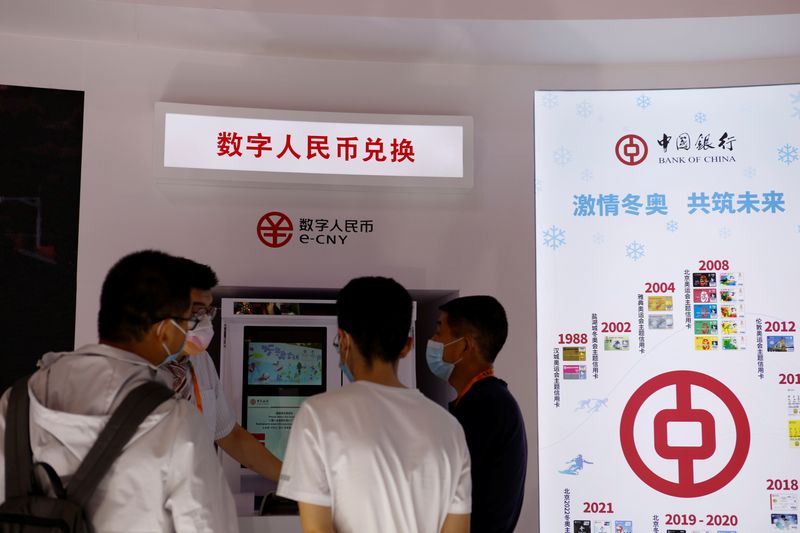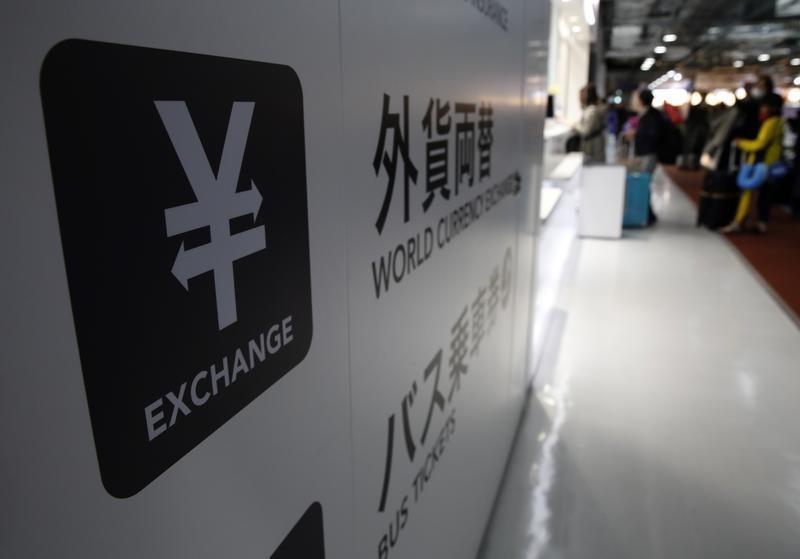By Marc Jones
LONDON (Reuters) – A total of 134 countries representing 98% of the global economy are now exploring digital versions of their currencies, with almost half at an advanced stage and pioneers such as China, the Bahamas and Nigeria beginning to ramp up use to see.
The survey by US-based think tank Atlantic Council, published on Tuesday, found that all G20 countries are now exploring central bank digital currencies (CBDCs) as they are known, with a total of 44 countries experimenting with them .
That’s up from 36 a year ago and part of a global push by authorities to respond to the declining use of cash and the threat to their money-printing power from the likes of bitcoin and ‘Big Tech ‘.
The Atlantic Council’s Josh Lipsky and Ananya Kumar said one of the most notable developments this year is the significant increase in CBDCs from the Bahamas, Jamaica and Nigeria, the only three countries to have already launched them.
China, which is running the world’s largest pilot project, has also nearly quadrupled the use of its prototype e-CNY to 7 trillion yuan ($987 billion) in transactions, according to officials.
“There is a narrative that the countries that have launched CBDCs have seen little or no use, but in recent months we have seen real application,” Lipsky said.
“My prediction is that the PBOC (China’s central bank) will be almost fully launched in a year,” he added.
Other major advances include the European Central Bank’s launch of a multi-year pilot project for the digital euro, and the United States, long involved in the digital dollar, joining a cross-border CBDC project with six other major central banks .
The bank still lags far behind almost all other leading banks, but Lipsky emphasized that it is one of the countries where privacy and other concerns about CBDCs are most pronounced.
In May, the U.S. House of Representatives passed a bill banning the direct issuance of a “retail” CBDC – the type used by the public. The Senate has not yet taken action, but it remains a hot topic in the presidential elections between Donald Trump and Kamala Harris.
Since Russia’s invasion of Ukraine and the response to G7 sanctions, the number of bank-to-bank ‘wholesale’ CBDC projects has more than doubled to thirteen.
The fastest growing, codenamed mBridge, connects CBDCs from China, Thailand, the UAE, Hong Kong and Saudi Arabia and is expected to expand to more countries this year.
Russia is unlikely to be one of them, but thanks to the trial of the digital ruble, it is now accepted on the Moscow metro and in some petrol stations. Iran is also working on a digital rial.

“No matter what happens with the U.S. elections, the Fed is years behind,” Lipsky said.
($1 = 7.0930 renminbi)


